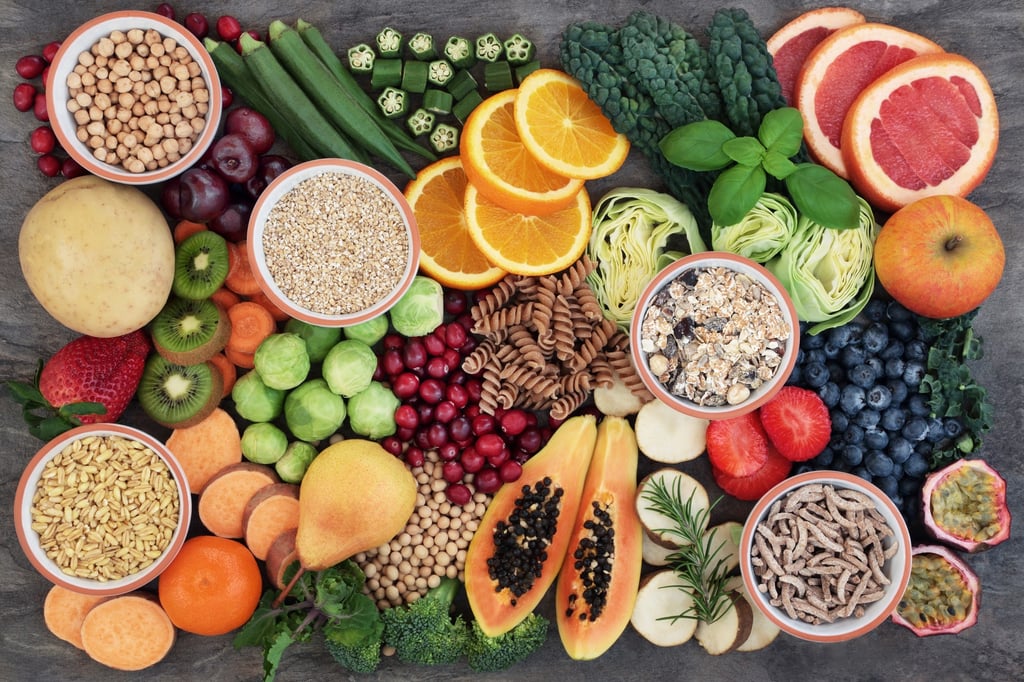From scmp.com
An unbalanced gut microbiome is linked to diabetes and more. Digestive issues are obvious red flags, but there are others you may not expect
Gut health is very important.
This microbiome plays several key roles, according to Singapore-based gastroenterologist Dr Andrea Rajnakova.
Good gut health is achieved when there is a balance between good and bad bacteria. There are several factors that may upset this balance, including environmental factors, antibiotic use, and consuming sugary soft drinks and high-fat, processed and fast foods.
This condition occurs when the intestinal lining becomes inflamed, damaged or irritated, allowing proteins, bacteria and toxins to pass from the lumen – the channel within the intestine through which digested food passes – into the bloodstream, Rajnakova says.
Choose foods containing healthy fats, like olive and avocado oils, nuts, seeds and fish
Other problems may flare up that we may not immediately associate with an unhealthy gut, because their symptoms may overlap with those of other conditions.
These include:
Sugar cravings: When there is too much yeast in our gut, the microbiome changes, says Graeme Bradshaw, a Hong Kong-based naturopathy and homeopathy practitioner.
“The yeast is usually the type called Candida albicans. Yeasts naturally ferment sugar, and in doing so remove the sugars and simple carbs from the foods we’ve eaten.
“The overall effect of this fermentation is not just a lot of gas, bloating and flatulence, but also a desire for sugary foods and fruits like grapes to make up for missing sugars. Unfortunately, that further feeds the Candida and bloating,” he adds.
Bradshaw says an imbalance in the gut, which can affect sugar, glucose and carbohydrate metabolism, may also cause cravings for high-carbohydrate foods.
Finally, gut inflammation may affect the production of “feel-good” chemical serotonin. Bradshaw says reduced serotonin levels may lead to anxiety, mild depression, cravings for sweets and even the desire to binge on comfort foods such as chocolate.
Safeguarding the gut
Certain plant foods, such as apples, bananas, mushrooms, soy beans, chickpeas, oats and barley, are naturally prebiotic; they contain special fibres that function as food for the good bacteria in your gut, allowing them to grow and thrive.
Rajnakova recommends avoiding white bread, white rice, pastries and other highly processed foods, and to minimise your intake of red meat.
When it comes to drinks, Rajnakova says water is best. Avoid sugary drinks and limit your intake of juices and milk. Coffee, tea, fresh fruit juices and low-fat milk can all be part of a healthy diet but are best consumed in moderation.
Limit sodium in your diet. Most processed foods are high in sodium, so skip these in favour of fresh, whole foods.
Rajnakova says probiotics – live microorganisms similar to the beneficial bacteria in your gut – may also aid digestive health. The most common probiotics belong to groups called Lactobacillus and Bifidobacterium.



No comments:
Post a Comment